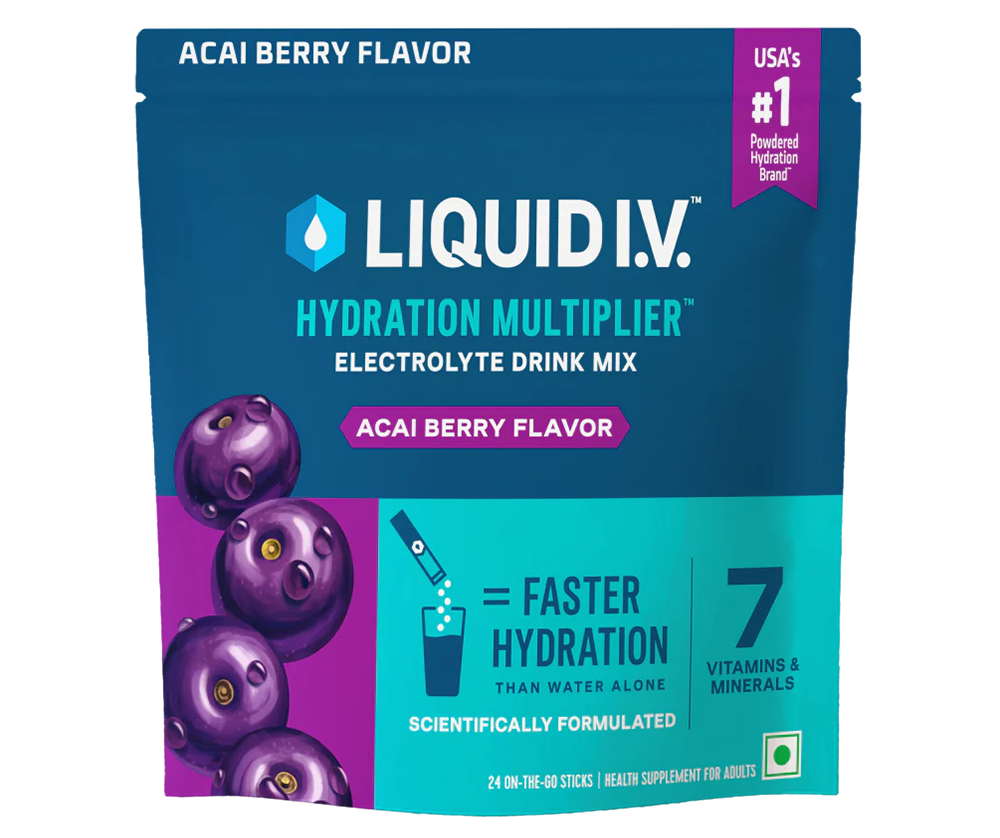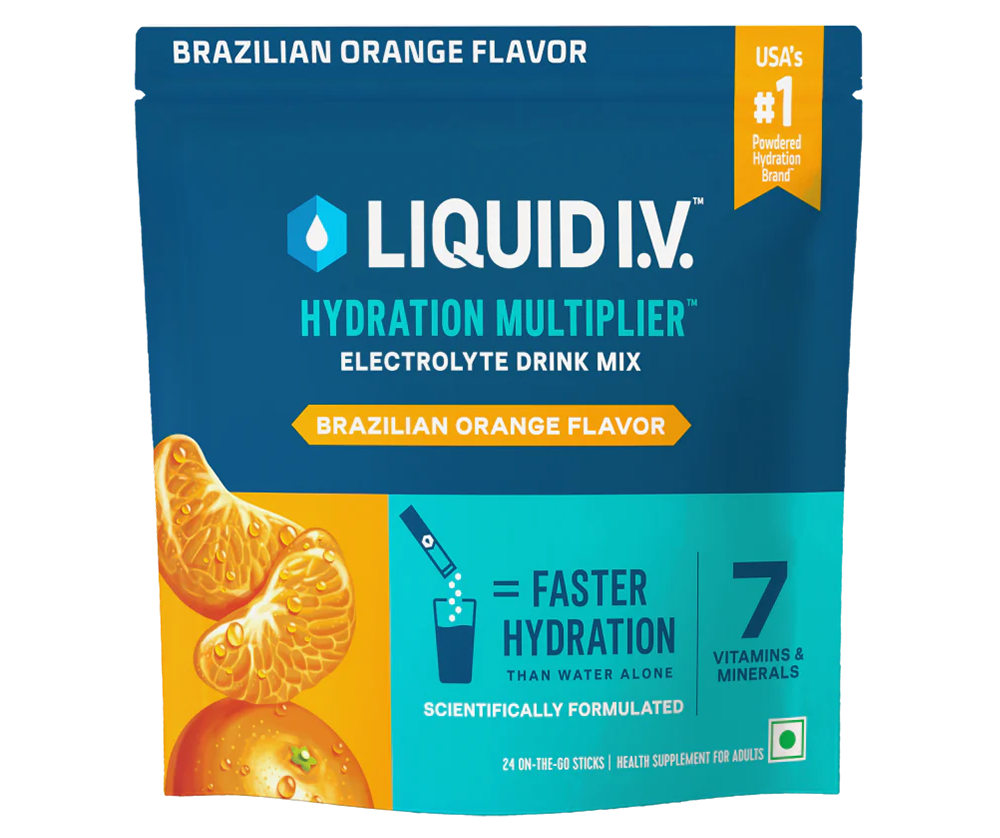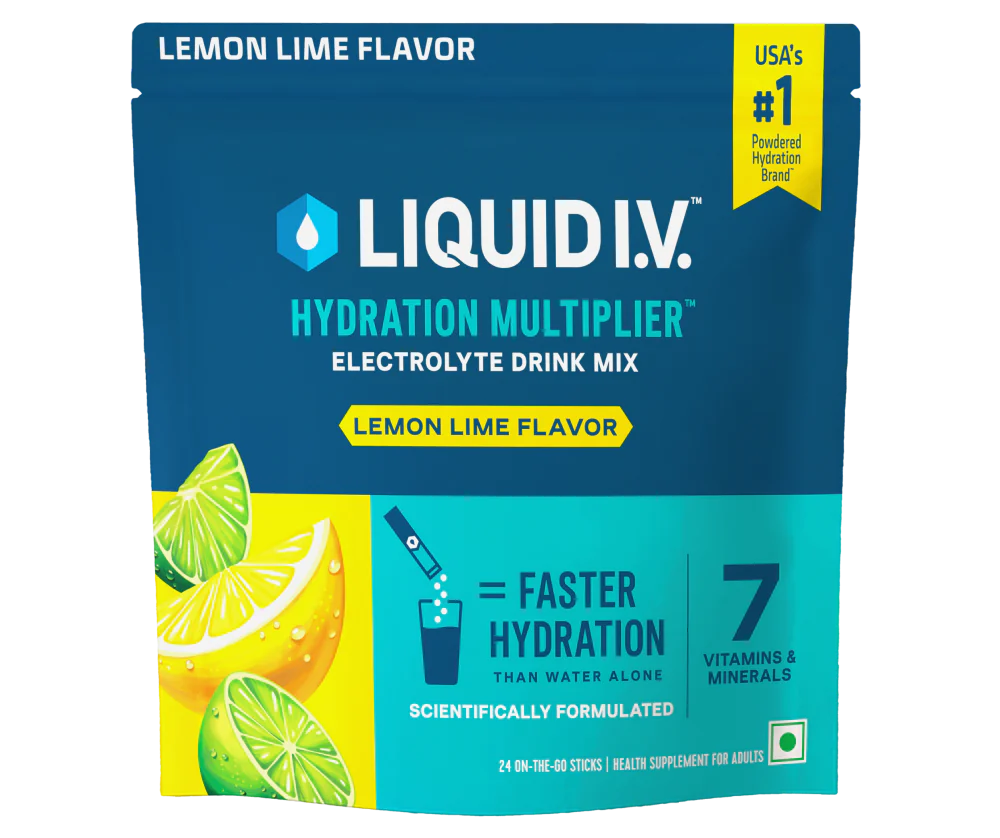6 Simple Tips to Stay Hydrated
Hydration is more than just drinking water when thirsty; it helps boost energy, keeps skin glowing, and keeps the mind sharp. But let's be honest! We all have had those days when life has got better for us, and we have missed out on sipping water. How do we reduce those days? How do we stay hydrated throughout the day? We will tell you all of it in this guide! We explore some easy yet efficient hydration tips to keep you soaring high on energy and feeling fabulous in your body.
What is Hydration?
Hydration helps stabilize fluids in our body. But when even the slightest signs of dehydration set in, getting our body the perfect mix of water and nutrients to function correctly is essential. Hydration helps stabilize body temperature, digestion, circulation, and skin health. In short, hydration means replenishing the body with all the fluids it needs to stay healthy and perform the best it can.
Hydration helps stabilize fluids in our body. It is not just about drinking water; it is getting our body the perfect mix of water and electrolytes for it to function properly. Hydration helps stabilize body temperature, digestion, circulation, and even skin health.
Why is it Important to Stay Hydrated?
- Physical Performance: Hydration is necessary whether one is going to the gym, having a busy day, or even relaxing on a weekend. Sometimes, when the body is dehydrated, we feel exhausted, muscles feel sore, and we lose motivation and energy [1]. Hydration is very important during vigorous exercise or when we sweat profusely, especially in high temperatures.
- Cognitive Function: Did you know that dehydration could significantly affect one's cognitive function? It could affect mood, concentration, and thinking clarity. Even if we have mild dehydration, we might experience foggy-headedness, distraction, and fatigue [1]. Additionally, dehydrated individuals report headaches and feel it affects their mood, alertness, and concentration [2][1]. While hydrating is not a "cure" for lack of concentration, it sure helps to stay hydrated and feel alert!
- Balancing pH: Hydration helps maintain a healthy balance of fluids inside the body. It means our cells have adequate water and electrolyte content, and our blood pH is stabilized [3][4].
- Healthy Skin: Our skin can indicate body hydration levels, too! A properly hydrated body has healthy, bouncy skin [5]. Believe the skincare gurus when they say hydrated skin is the happiest skin!
6 Simple Steps for Staying Hydrated All Day
Since we know hydration is paramount, let's discuss how to stay hydrated throughout the day. Here are six simple tips to help keep the water intake on track without stressing over it.
-
Manage Intake According to the Needs
Everyone's hydration requirements are different. So, how can I stay hydrated? How do I decide my hydration needs?
We might need to modulate our water intake depending on age, gender, physical activity, and even outside weather. The standard recommendation is about 3.7 litres for a male and 2.7 litres for a female for the entire day [6]. This must be increased if one works out or stays outdoors in high-temperature areas or climates. -
Drink Right - Balance Water and Electrolyte Infused Water
Hydration is essential. But what if one has not hydrated adequately? How does one rehydrate then?
If you feel dehydrated, there is a quick solution: simply make a drink with water and electrolytes. You’ll feel better in no time! Sometimes, we tend to miss hydrating ourselves due to our busy schedules. On such days, a drink like this works wonders. -
Hydrate First Thing in the Morning
After a long sleep, our bodies are dehydrated. As soon as we wake up, we should have a glass of water before grabbing a coffee. The water replenishes fluids lost at night, giving our metabolism a wake-up call. This gets us going for a healthier start to the day. -
Eat Foods Rich in Water
Hydration is not limited to drinking water; consuming water-rich foods also helps! Cucumbers, watermelon, oranges, and lettuce, among other fruits and vegetables, are all rich in water and will help keep our bodies cool [1]. Make these part of your meals or snacks for that extra dose of hydration. -
Reduce Caffeine and Alcohol
Who doesn’t love a hot coffee in the morning or an evening drink? But coffee and alcohol can dehydrate the body. If indulging in caffeine or alcohol, it's always recommended to hydrate well enough by drinking a glass of water. It's better to mix some electrolytes, too, for rapid rehydration! Our bodies will thank us! -
Carry a Water Bottle
Having a water bottle with us always helps us stay hydrated. Whether at work, running errands, or working out, a reusable water bottle reminds us to sip. Refill it, and you're good to go!
Conclusion
Hydration is probably one of the simplest and most effective methods for boosting health. These simple hydration tips contribute to better physical well-being. Proper hydration goes well beyond drinking water; it is about fluid balance for the body to function optimally. Thus, grab a water bottle, mix it with electrolytes, hydrate and feel the difference!
FAQs
-
How to drink water correctly?
You must sip water throughout the day rather than gulping it down. This helps you maintain steady and consistent hydration, adding electrolytes makes it even better. -
Why is staying hydrated important?
Hydration benefits physical performance, cognitive functions, digestion, skin health, and overall well-being, which are the basis for healthy living. -
Can I count beverages like tea and coffee towards my daily water intake?
Tea and coffee supplement hydration only to a small extent, However, caffeine dehydrates the body. It would be ideal to drink a glass of water before you sip the first caffeine fix for the day. This would prevent dehydration.
So, how do you stay hydrated? Tell us your hydration hacks!





